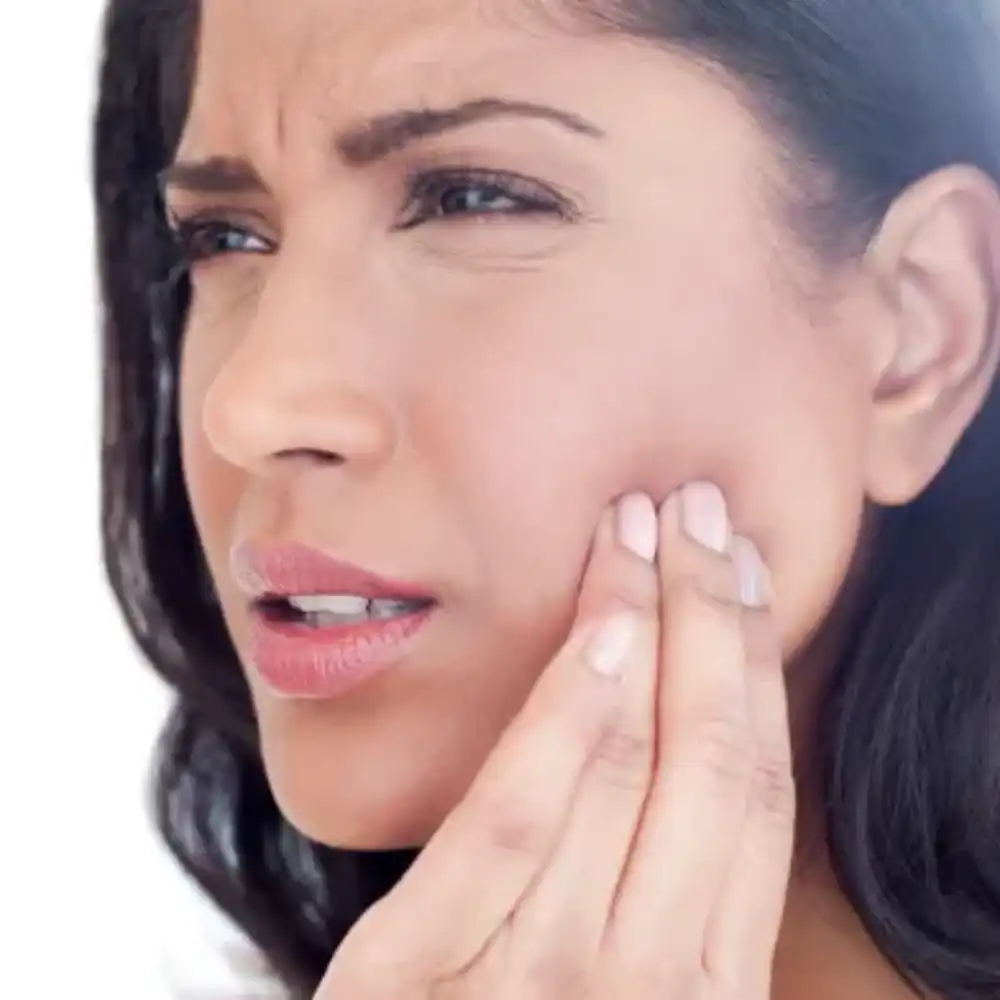TMJ/TMD in Troy, Moscow Mills, & Winfield

Do you suffer from headaches, grinding of your teeth, clicking of your jaw or even ear pain? These can all be signs of Temporomandibular joint (TMJ) syndrome, also known as temporomandibular joint disorder (TMJD). This is a disorder of the jaw muscles and nerves caused by injury to the TMJ, which is the joint between your jaw and skull. The injured temporomandibular joint leads to pain with chewing, clicking, and popping of the jaw; swelling on the sides of the face; nerve inflammation; headaches; tooth grinding; and sometimes dislocation of the temporomandibular joint.
What Causes TMJ Syndrome?
Multiple factors contribute to muscle tightness and dysfunction that characterize this condition. Most often, poor posture and neck alignment change the pull of the muscles that make your jaw move. This causes painful grinding and irritation of the TMJ. Other causes may include:
- Poor alignment of or trauma to the teeth or jaw
- Teeth grinding
- Poor posture
- Stress
- Arthritis or other inflammatory musculoskeletal disorders
- Excessive gum chewing
A lot can be done to help TMJ, first starting with a thorough evaluation of your problem with our expert physical therapists. Once the root cause of your problem has been discovered, a comprehensive plan can be developed to quickly relieve your pain and restore natural movement to your TMJ. Furthermore, our physical therapists will teach you techniques for regaining normal jaw movement for long-lasting results.
What Happens During a TMD Physical Therapy Evaluation in Troy?
Initial evaluation will take place on your first visit to a PT with TMD/TMJ. The PT will discuss your condition and ask questions about your jaw pain. Your eating habits and any other activities that could cause irritation to your jaw will also be discussed. The PT may also ask you about any previous treatment for TMJ/TMD pain. During the PT evaluation, you may also need to have several tests done in order to determine a baseline measurement.
A PT evaluation could include the following components:
- Measuring the neck and jaw range of motion
- Evaluation of the jaw structures
- Listening to clicks and clicks in a joint environment
- This is the measurement of strength in the jaw and postural muscles
- Assessing your posture
After your evaluation is completed, your physical therapist will talk with you about the results, create a plan for care, and work with you to set goals for your therapy.
What to Avoid
There are some things that you should avoid if you have TMD.
- Use your teeth as tools
- Nervous chewing
- Hard, chewy or crunchy food
- Poor posture
- You should sleep on your stomach
- Teeth grinding
- Stress
What Can Physical Therapy Do to Help TMD in Troy?
TMD is a condition that causes pain in the jaw. TMD can be treated with physical therapy. A TMD certified physical therapist can diagnose the root cause of your pain, and help improve your jaw movement.
Non-invasive treatments are used by physical therapists to reduce pain and restore natural movement in your jaw.
TMD evaluations and treatment are a specialty of Foothills physical therapists. Please schedule an appointment at one of our many valley-wide locations to get a TMD assessment. A personalized care plan with a variety of treatment options can also be created for you. TMD can be effectively managed with physical therapy, even if the symptoms are severe and long-lasting.
See Our TMD Troy Specialists
The focus of physical therapy for TMJ is relaxation, stretching, and releasing tight muscles and scar tissue. In most cases, physical therapy can resolve TMJ and prevent the need for surgery. However, in cases where surgery is absolutely necessary, physical therapy is a vital part of the recovery process, as it helps minimize scar tissue formation, muscle tightness and allows for a complete recovery. For more information, Contact us today.

